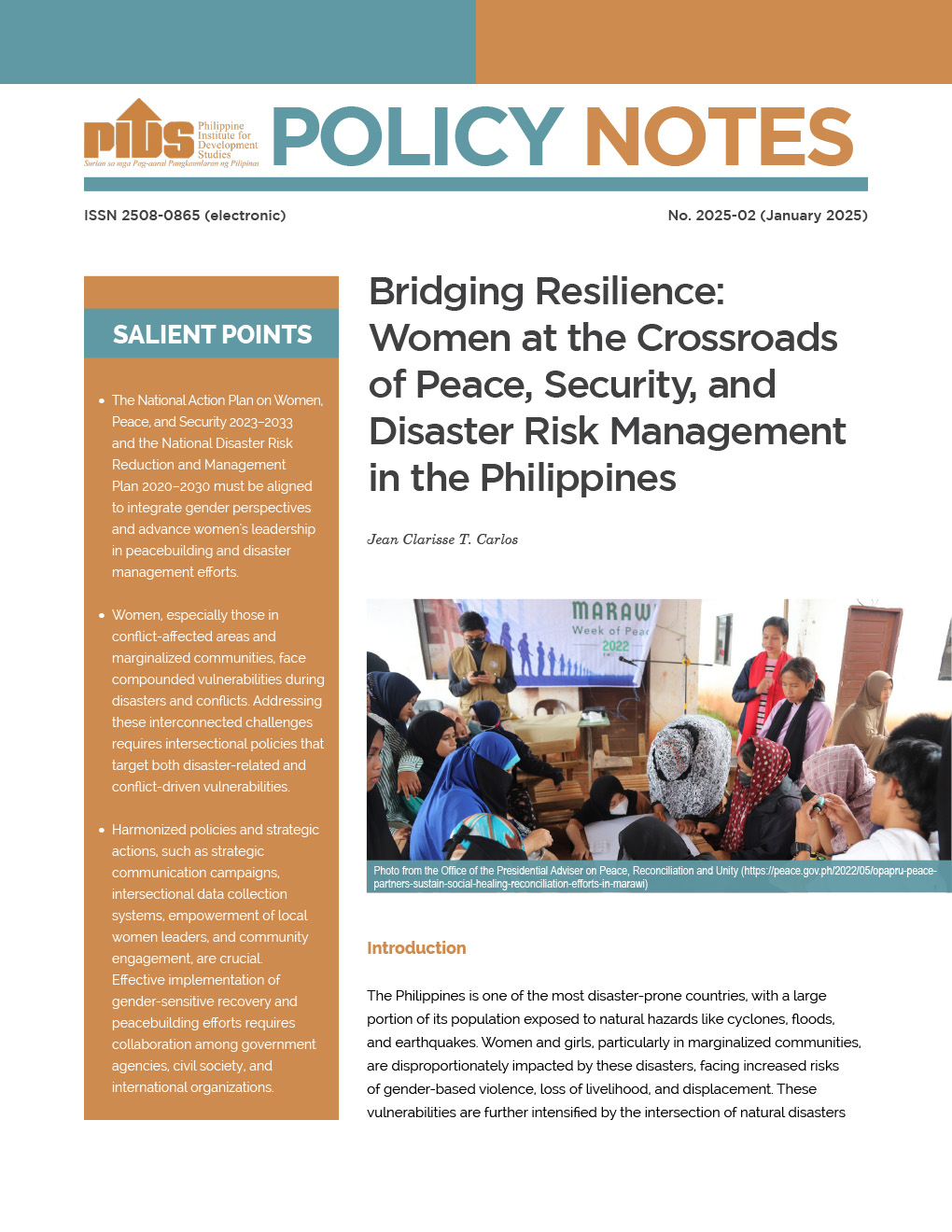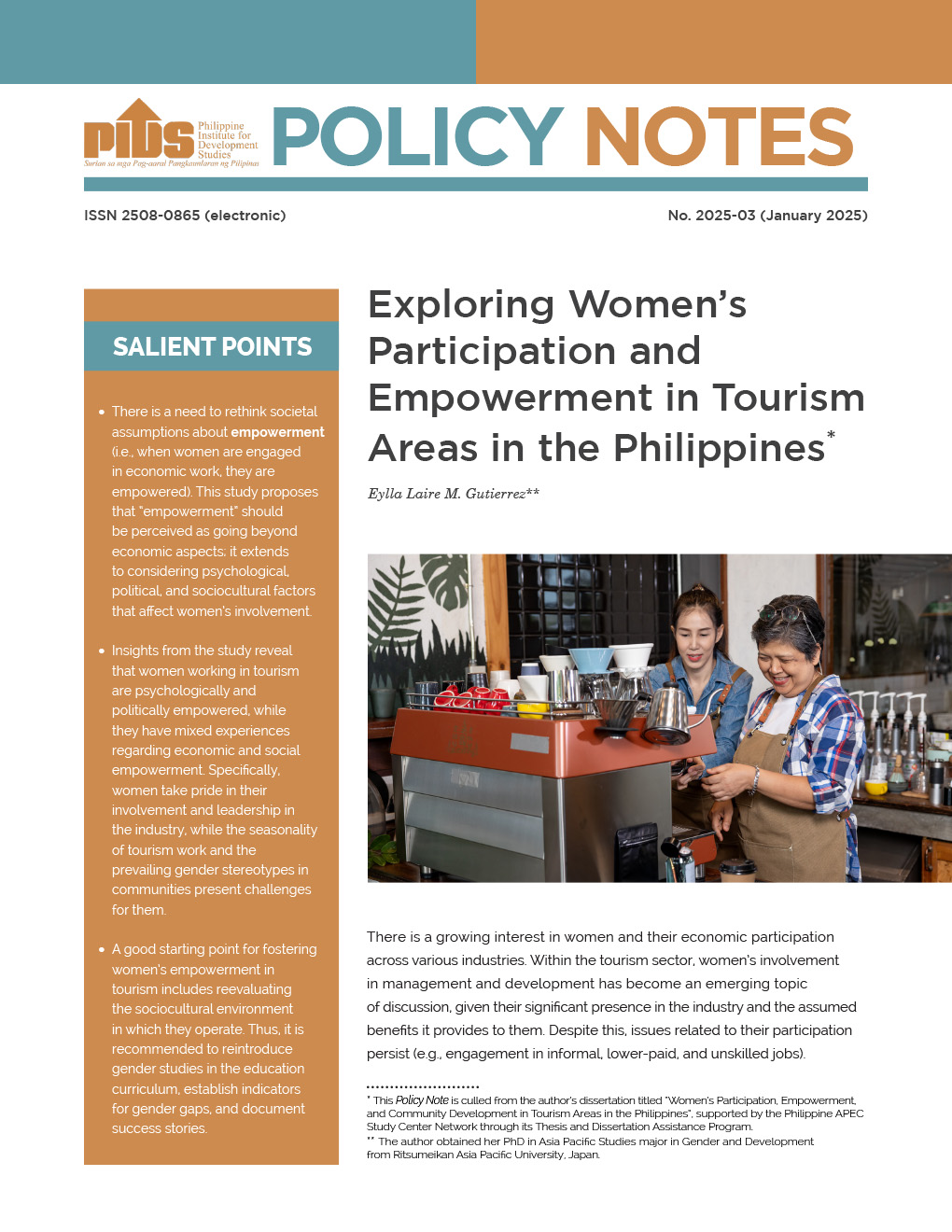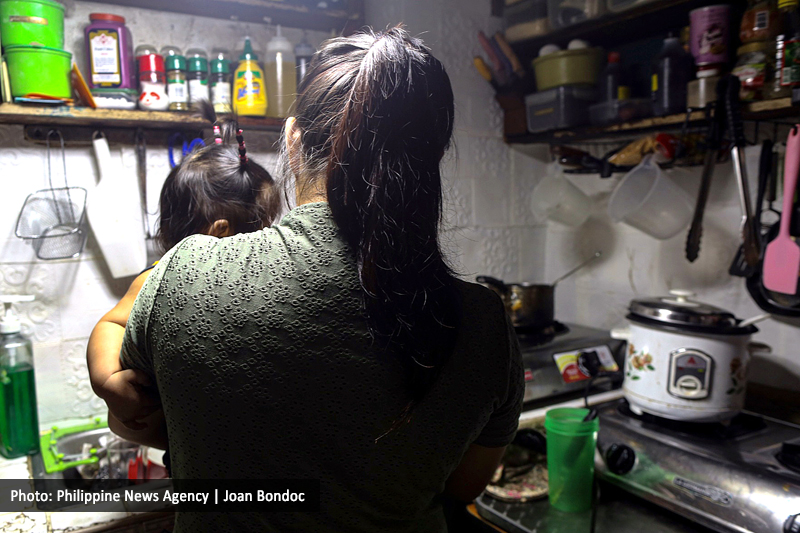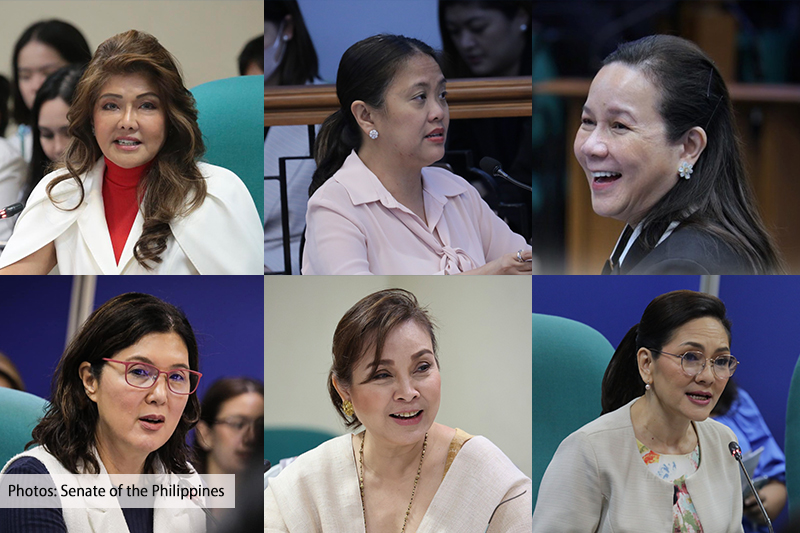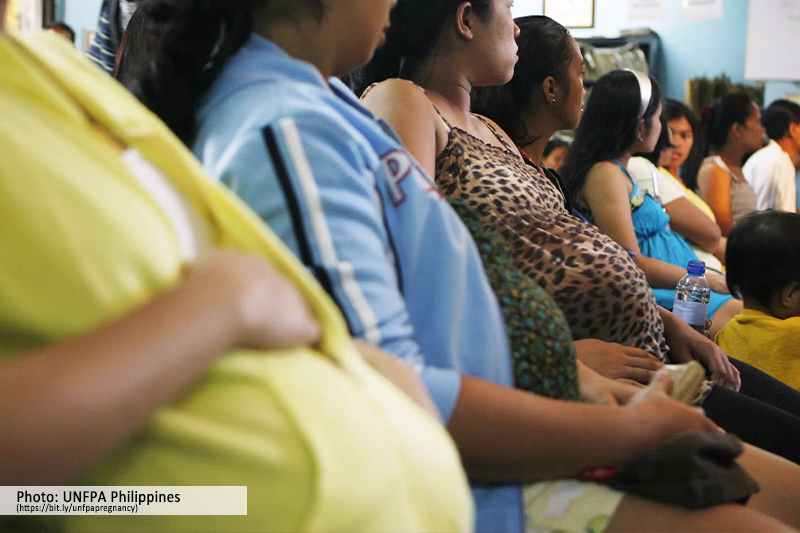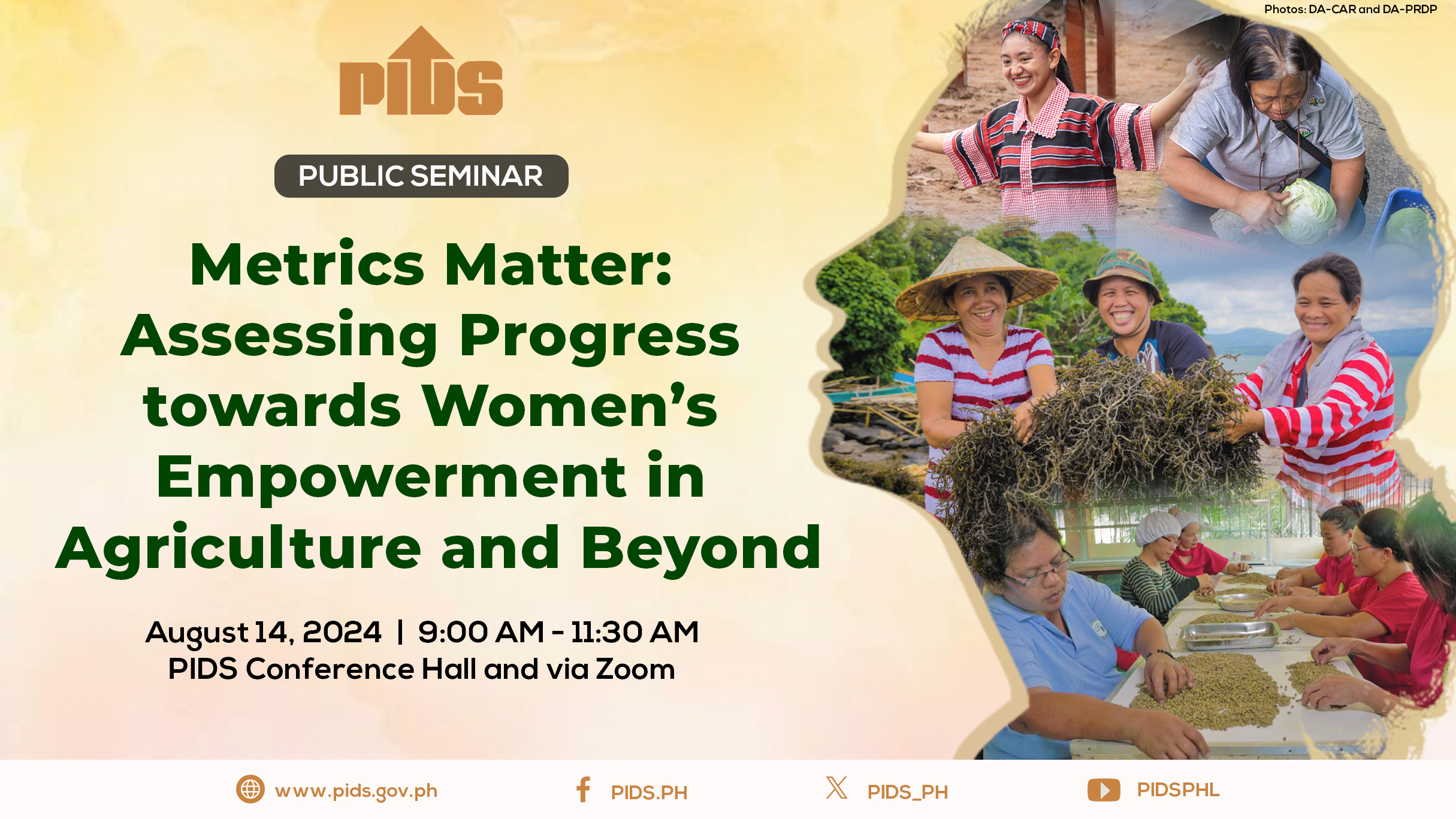INFORMAL jobs for women in the tourism sector present challenges such as stiff competition, seasonality and sexual harassment, according to a study released by the state-owned think tank Philippine Institute for Development Studies (PIDS).
PIDS Philippine APEC Study Center Network Project Development Officer Jean Clarisse T. Carlos, Central Luzon State University-College of Home Science and Industry former Assistant Professor Marie Jel D. Bautista, and Asian Institute of Management-Andrew L. Tan Center for Tourism Research Manager Eylla Laire M. Gutierrez, found these challenges from their study of the informal tourism sector in Boracay.
The researchers said women’s contribution in the tourism sector in Boracay makes in necessary to address gaps through better data collection, gender sensitivity training, and appropriate support.
“We found that while informal workers are organized in associations, there are challenges related to seasonality and competition with formal establishments,” Guttierez said in a recent briefing. “Issues of sexual harassment are also more prevalent in certain sectors.”
Women workers were in subsectors like souvenirs, food and beverages, excursions and emerging tourism segments such as beach mat vending.
Unfortunately, the researchers said, the challenges of women in these subsectors are often overlooked due to the informal nature of their work.
The study also noted inconsistencies in government efforts across regions, making their effectiveness difficult to measure. Some areas prioritized initiatives specifically for women workers, while others integrate gender considerations into broader frameworks.
Compounding the above challenges is the difficulty in collecting and sharing data on informal tourism workers. Carlos, co-author of the study, elaborated that, “while there is available data, the sophistication of data gathering and sharing remains a challenge.”
Streamlining data collection and collaboration among different organizations, the researchers said, are essential for establishing a more comprehensive understanding of the informal tourism sector and its specific needs.
“Collaboration among different members of the tourism sector, as well as gender sensitivity training, are critical for driving the empowerment of women,” Carlos and Gutierrez aptly concluded.
Nonetheless, positive signs of a shift toward recognizing their critical role within the industry are emerging. Department of Tourism (DOT) Western Visayas’s Karen Joy Sargado said in the forum that DOT initiatives demonstrate a growing awareness of the contributions made by this vital workforce.
“Despite regulations often favoring the formal sector, the DOT recognizes the crucial role played by informal tourism workers,” Sargado explained. “This recognition is evident in initiatives providing technical assistance, livelihood programs, and support for small businesses within this sector,” she highlighted.
The PIDS researchers also said there is a strong desire among women informal workers to be included in the formal economy for its attached benefits and security.
In order to achieve this, the study recommends education and training, capacity building, creating gender and development indicators for tourism, community organizing, and private sector involvement.

